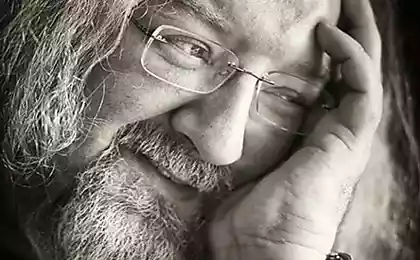213
7 things that will happen to you before you find your calling

Before you find your calling, a few important things will happen to you, both pleasant and not so good. The path to a true calling is rarely straight and clear. Most often it is a winding road full of unexpected turns, temporary dead ends and valuable discoveries. Understanding the stages of this path can help you not only accept their inevitability, but also make the most of each.
1. Disappointment on the chosen path
It may seem counterintuitive, but one of the first steps to finding a true calling is often realizing that your current activity is not right for you. Many people discover their true vocation only after experiencing a deep disappointment in a previously chosen direction.
According to Gallup research, about 60 percent of millennials are willing to change jobs if a more attractive opportunity arises – significantly higher than previous generations.
Disappointment serves an important function: it signals that it is time to move on. This is not a defeat, but valuable information about yourself and your true needs. At this stage, an important realization occurs: what seemed attractive in theory or looked prestigious in the eyes of others, in practice, may not resonate with your inner being.
How to Benefit from Disappointment:
- Analyze specifically what causes dissatisfaction - the activity itself, the environment, the team or the working conditions.
- Make a list of what you really enjoyed doing, even if it was a small part of the job.
- See this experience not as lost time, but as an important exclusion of options from your path.
2. The Unexpected Discovery of Hidden Talent
In the process of moving in different directions, you will certainly encounter situations in which you will find talents and abilities that you did not previously suspect. Often these discoveries occur by chance - as part of a project, hobby or even when solving household tasks.

Psychologists call this phenomenon lateral talent – abilities that are found not as a result of systematic development, but as a byproduct of other activities. For example, a person working in marketing may find a talent for writing texts or visual creativity.
“The most interesting careers are often born at the intersection of different fields of knowledge and skills. A key ability of the modern professional is the ability to see connections between seemingly unrelated fields and use skills from one field to innovate in another. Adam Grant, Organizational Psychologist
It is important to note that such discoveries usually occur only in active interaction with the world. If you stay in your comfort zone all the time, the chances of discovering hidden talents are minimal. That is why experts recommend regularly trying new activities and not be afraid to take on tasks that go beyond the usual experience.
3. A period of "creative chaos"
Many people who are in search of their calling go through a stage that experts call multipotentiality – a state when a person is passionate about many different directions at once and can not focus on one thing.
Emily Wapnick, author of The Multipotential Path, states that about 15-20% of people are multipotential—they have the ability to thrive in multiple unrelated areas.
This period can be worrisome due to a lack of clear direction and social pressure (“it’s time to decide!”). However, this diversity of interests is often the key to finding a unique professional niche.
How to Structure “Creative Chaos”
- Keep a hobby diary, where you will note which aspects of different activities bring the most satisfaction.
- Practice temporary immersion - allocate 2-3 weeks for intensive study of one direction
- Look for the intersection of different interests – this is where a unique niche often hides.
- Apply the principle of thematic unification – find a common topic that connects different hobbies
4. Meeting a mentor or inspirational person
Research shows that more than 70% of successful professionals can name a specific person who has had a significant impact on their career path. Meeting such a person—whether a formal mentor, colleague, or even the hero of a biographical book—is often a turning point in finding a calling.
“We do not see reality itself, but reality filtered through the prism of our experience. The mentor helps us see new lens and new possibilities that were invisible because of the limitations of our thinking.” Robert Greene, author of The Mastery
Mentor performs several important functions:
- Provides a model of success in an area of interest
- Shares non-obvious practical experience that is not available in publicly available sources
- Indicates blind spots and warns against common mistakes
- Instill confidence in the ability to achieve goals

How to find your mentor:
- Identify specific people in a field of interest whose path is respected
- Join professional communities where you can meet experts
- Don’t be afraid to ask specific questions directly (most people like to share their experiences)
- Use the principle of “training interview” – a request for a 20-30 minute conversation for advice usually meets a positive response.
5. Crisis of meaning and values
Almost every person in the process of searching for his vocation goes through a period of deep rethinking of life values. This crisis is often accompanied by existential questions about the meaning of activity, its impact on the world, and the conformity of personal moral principles.
According to a Harvard Business School study, 9 out of 10 workers are willing to sacrifice a portion of their earnings for more meaningful work that aligns with their values.
Value crisis often occurs after achieving certain external goals – obtaining a prestigious position, achieving financial well-being or professional recognition. The person suddenly discovers that these achievements are not bringing the expected satisfaction, and begins to wonder: “What is really important to me?” ?
“The real calling is not where you make the most money or get the most recognition. It is where your unique talents intersect with the real needs of the world.” Frederick Buchner, theologian and writer
This period, although painful, is a necessary stage of personal maturation. As a result of such a crisis, a person often finds an inner compass that allows him to make choices that correspond to his true nature, rather than external expectations.
How to get through a value crisis:
- Exercise “Epitaph” – imagine what you would like to write about your life and contribution to the world
- Make a list of 10 moments of deep satisfaction in life and analyze what they have in common.
- Ask yourself the question “Why does it matter?” 5 times in a row in relation to any goal to get to the true motivation.
- Temporarily disengage from external stimuli – turn off social networks, reduce information noise
6. Professional pilgrimage
Many successful professionals describe a period when they made a kind of pilgrimage – immersion in the field of interest through communication with its representatives, visiting significant places or participating in specialized events. This process can be called professional immersion.
Unlike formal education, such immersion gives an opportunity to feel the real atmosphere of the profession, get acquainted with its hidden sides and non-obvious requirements. Often it is in the process of such a pilgrimage that the final crystallization of the vocation occurs - or, conversely, the realization that the romanticized idea of the profession does not correspond to reality.
“In order to find your calling, it is not enough to think about it in theory. It is necessary to physically immerse yourself in the environment, communicate with people, feel the emotional reality of the chosen path.” Cal Newport, author of “So Good as Impossible”
Options for professional "pilgrimage":
- Agree on the possibility of a “working shadow” – to spend a day next to a professional, watching his work
- Find a short-term internship or volunteer project in an area of interest
- Attend professional conferences and workshops even if you are not already working in this field.
- Organize a series of meetings with representatives of different specializations within the field of interest
7. A period of integration and acceptance of uncertainty
The final stage before finding a vocation is the integration of accumulated experience and the acceptance of the fact that vocation rarely comes as an unambiguous insight. More often, it is a gradual process of crystallization, when disparate elements of experience, skills and interests form a holistic picture.
At this stage, there is an important psychological shift: from the idea of a vocation as a specific position or profession to understanding it as a unique combination of values, talents and a way of interacting with the world.
Research shows that people who have found their vocation usually describe it not as a specific job, but as a certain state - when their inner abilities optimally match external tasks, creating a state of flow.
Accepting uncertainty becomes a key skill at this stage. This means being willing to move in the direction you choose without 100% guarantee that it is the “right” calling, with an openness to adjusting the course to suit new experiences and changes in yourself.
“A calling is not a destination but a direction of movement. It is not something that you once find and fix forever, but something that is constantly refined and deepened in the process of life.” Parker Palmer, writer and activist
Practices for the integration period:
- Create a personal manifesto describing your current understanding of calling, with an awareness of its evolutionary nature.
- Identify your “fundamental principles” – what doesn’t change regardless of a particular job or project.
- Practice projective mapping – imagine different versions of your professional future and note which elements are repeated in different scenarios
- Ask yourself regularly, “If I knew I couldn’t fail, which direction would I take now?” ?
Conclusion: Calling as a process, not a destination
The search for vocation is not a linear process with a clear beginning and end, but rather a spiral movement in which periods of clarity are replaced by periods of uncertainty. Each of the seven things described above is an integral part of this path, and trying to skip a stage usually leads to a superficial understanding of one’s calling.
It is important to remember that calling is not a static state that remains unchanged throughout life. As experience accumulates, skills develop and life circumstances change, it can evolve and transform. A person who has fully realized his vocation in one area may discover a new vocation in the next stage of life.
Treat the search for calling as a fascinating journey of self-discovery, not as an unsettling necessity. Every experience, every disappointment, and every discovery brings you closer to a deeper understanding of yourself and your unique way of interacting with the world.
Glossary of terms
Lateral talent is the ability and skill found not in the process of purposeful development in a particular area, but as a byproduct of another activity or as a result of transferring skills from one area to another.
Multipotentiality is the predisposition of a person to succeed in several different fields or disciplines. Multipotentialists often have diverse interests and have difficulty choosing one career path.
Thematic association is a method of finding a common theme or principle that connects diverse interests and skills, which allows you to create a unique professional niche at the intersection of different fields.
A value crisis is a period of intense rethinking of personal and professional values, often accompanied by a sense of loss of reference points and the need to revise life priorities.
Professional immersion is a deep immersion in a professional environment through direct interaction with its representatives, participation in relevant events and practical acquaintance with work processes.
Flow is a psychological state of total immersion in an activity characterized by high productivity, loss of sense of time and a sense of deep satisfaction. The term was coined by psychologist Mihai Csikszentmihalyi.
Projective mapping is a method of visualizing different versions of the professional future in order to identify recurring elements and key priorities that are independent of a particular career development scenario.
8 Ways to Maintain Passion in Long-Term Relationships
6 character traits that indicate that you are a self-sufficient person























